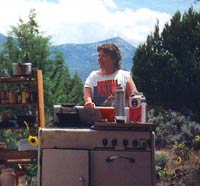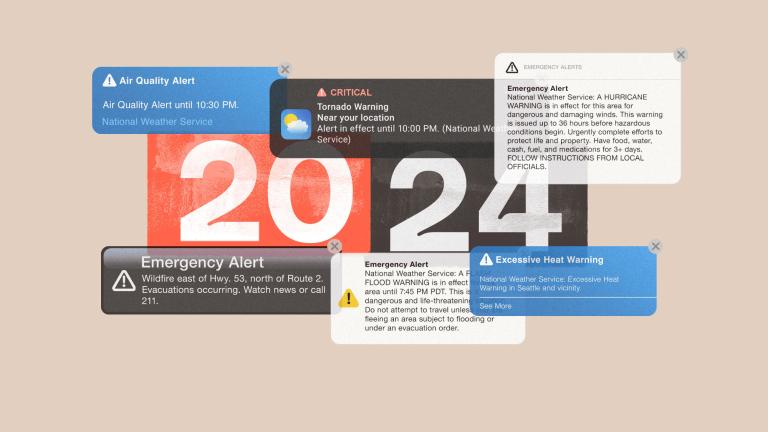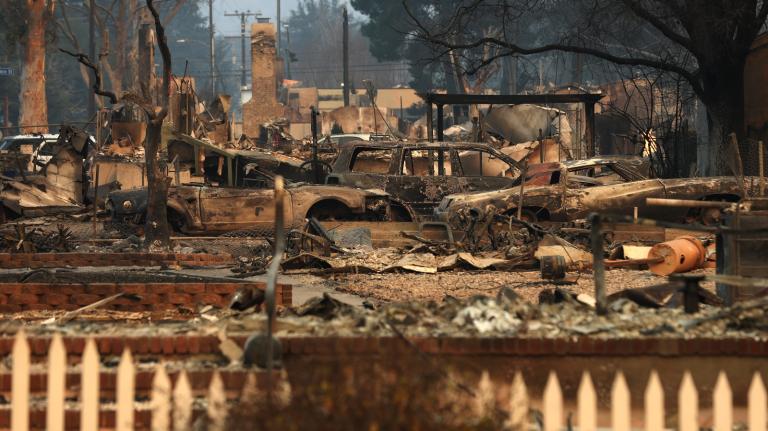I called my friend Nancy Carter the other day to complain about some new complications in my personal/professional/spiritual life. Nancy, as usual, laughed in soft, dry tones and said something I didn’t really understand. Her words lay dormant in my brain until after lunch, when they unfurled as explicitly as a banner outside a Fourth of July sale. She said, “That’s a very interesting crisis. That’s a really good one. Very imaginative. Ha!”
I love calling Nancy — the Zen koans she typically doles out beat advice any day of the week. I also love that it’s possible to call Nancy, a state of affairs that evolved only recently, when she finally put in a phone line. For most of the last five years, talking to Nancy meant driving out of Paonia, a tiny mining and fruit-farming town in western Colorado, parking at the bottom of a juniper-studded mesa, and walking for half a mile up a road I will charitably call unimproved. There, past an army of sunflowers nodding and bobbing in the breeze, I’d come upon a half-built house of mud and straw (standing in contrast to the straw-bale houses, recycled hexagonal shacks, teepees, and discarded-tire earth-ships of her neighbors). Inside Nancy’s house, cooking pots lay on the floor, keeping company with piles of tools and a pair of stuccoed sneakers that resemble the bronzed booties of an enormous infant. The propane stove was set on pallets in a kitchen that had shelves of homemade peach jam, but no walls.

A room with a view.
Nancy has a project: She is building a house. It’s taken her five years and she’s about two-thirds done. She’ll spend this winter in her snug, stuccoed bedroom, reading by solar-powered lights. For the first time, she won’t have to house-sit during the really cold months. The bedroom has clean-looking wood floors and a phenomenal view of the West Elk Mountains. Still, her kitchen floor is gravel, and her composting toilet is a mystery, even to her.
Why is she doing this? She got tired of being Paonia’s only chiropractor a few years ago. At the time, she was sharing a house with a pair of teachers who displayed a stunningly simple environmental ethic: They aimed for zero garbage production, rode their bikes everywhere, and sighed sadly every time circumstances conspired to make them ride in an automobile. They introduced Nancy to the simple fact that if she consumed less, she could live on less and therefore work less. When the chance arose to buy 40 acres and split it with the teachers and a young married couple, Nancy signed on. She was seized with a desire to know what her life was made of. As in, what are the walls of her house made of? How does electricity move through walls and through outlets into appliances? Is there a way to build a house without hurting the environment?
“Some people create a crisis when they want to change their life,” says Nancy, who is 50 and has a 26-year-old son. “They quit their job or get divorced. I decided to build a house. ‘Do no harm’ became my new guiding philosophy, and until I can do it consistently for a full day, I need no other rules,” she says. “Every action I do has far-reaching impacts. I went into the woods with loggers who cut only standing dead trees, skid the trees with horses, and decide which trees they can take with the least damage to the living forest. They decide which dead trees they will leave for the raptors before they even unload their tools. Profit was only one of many considerations, and not a major one at that.” (Wanna meet one of these friendly loggers?)
Nancy sometimes worries that she’s not doing enough for the world. She wants to make a real political difference. She has taken service trips to El Salvador and the Hopi Reservation in Arizona, and she fantasizes about working abroad.
When she says that, I say this: There is as much impoverishment in the imaginations of middle-class Americans as there is anywhere. What this five-foot-tall woman has done with the last five years of her life amounts to a statement we may be ready to hear: We can whup our lifestyles into a shape we can live with. If we really want to.

